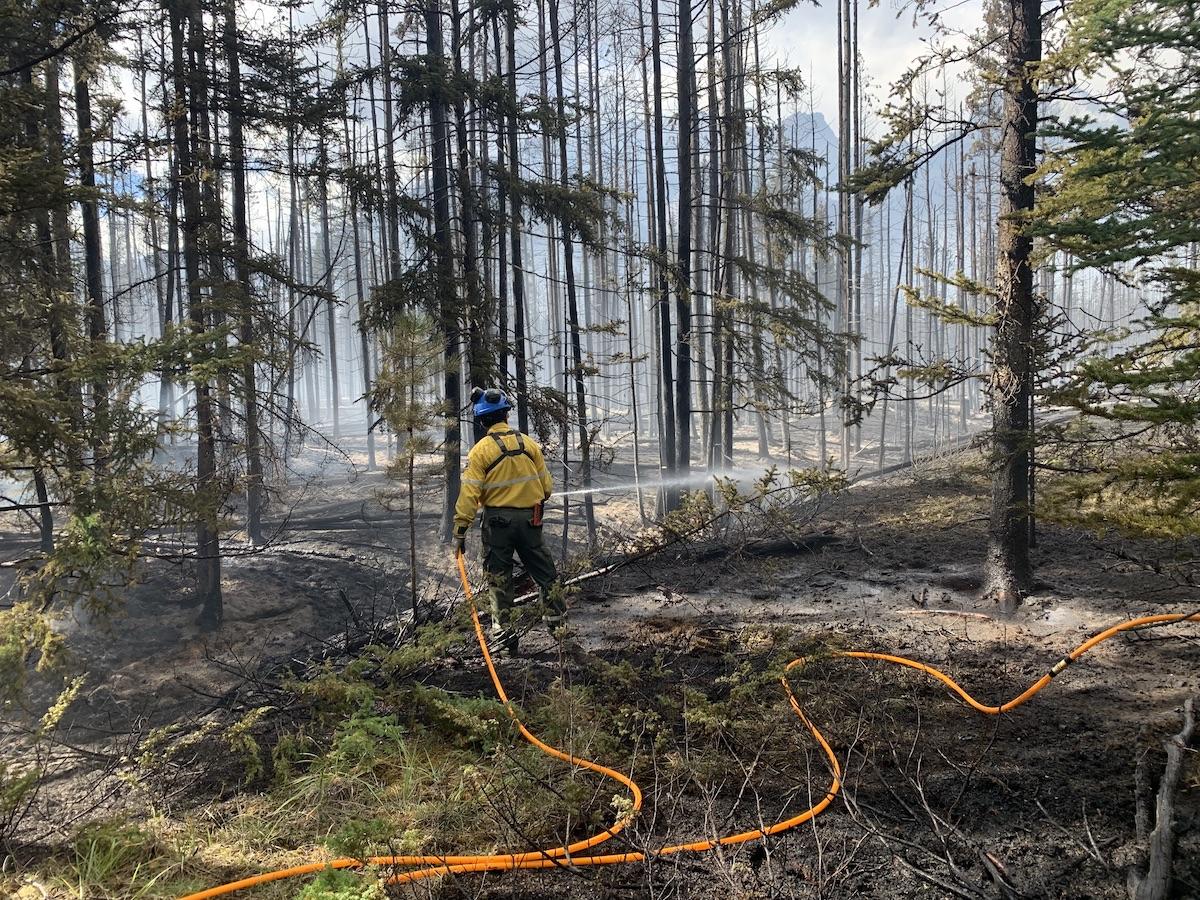
In this undated file photo of the Chetamon wildfire in Jasper National Park, a firefighter uses a hose/Parks Canada
The western flank of the Chetamon wildfire in Jasper National Park will be allowed to spread because of ecological benefits.
Parks Canada fire management personnel spent time on the ground and in the air over the weekend assessing the western flank and decided to let the fire spread on the western perimeter into the Chetamon Mountain basin, Vine Creek valley, Corral Creek valley and Snake-Indian River valley.
“Fires have many ecological benefits,” the agency said in a news release. “They reduce fuels, release nutrients and allow for a mosaic of ecosystems that support a diversity of plants and wildlife.”
By allowing fire to burn in these areas, the Alberta mountain park will have renewed habitat for wildlife like grizzly bears, wolves and elk. Natural features within these valleys — such as rocky ridges, water and low-lying moist areas — will help contain the spread within the western flank.
The fire started Sept. 1 by a lightning strike and poses no risk to communities or infrastructure. It continues to “be held” on the south, east and north perimeter. Hot, dry weather has increased smoke and hot spots in these areas, resulting in limited growth.
“Fire suppression takes time, patience and attention to detail,” Parks Canada said. “Seeking out and extinguishing hot spots is an important piece in ensuring the fire doesn’t remain burning underground in these areas throughout the fall and winter months.”
When fires move through a landscape, fuels (branches, logs, shrubs) are broken down and consumed. When safely managed, fire can help to create a fuel break, limiting the spread of future wildfires.
“By allowing certain areas of the Chetamon wildfire to grow under monitored conditions, vegetation will be reduced,” said Parks Canada. “The fuel break this creates will ultimately prevent future catastrophic wildfires that start in the northwest from spreading toward communities and infrastructure.”
To restore the natural disturbance process and limit the overabundance of mature pine forests, Parks Canada says it is committed to restoring fire on the landscape, calling it “an efficient way to not only remove trees killed by mountain pine beetle, but to restore forest ecological integrity and protect values at risk.”
Since the start of this wildfire, four drone-related incidents have resulted in charges. Using recreational drones in Jasper is dangerous and illegal, carrying a maximum fine of $25,000 ($18,000 USD).



Add comment